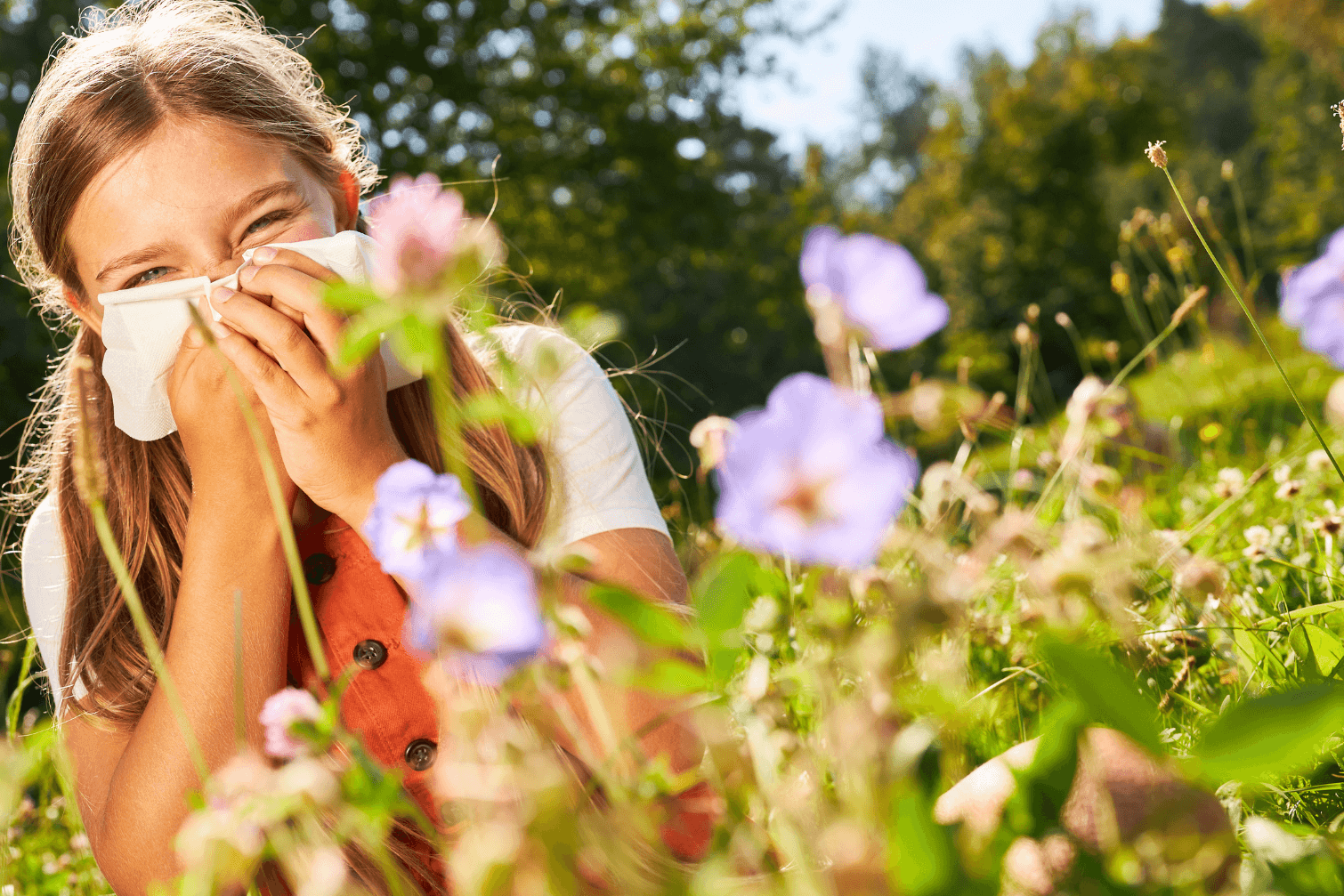Juggling work, family, and personal well-being isn’t always a breeze, especially when sneezes and sniffles from pollen allergies come into play.
If you’ve ever wondered why some family members seem to suffer more than others, you’re in the right place.
Let’s dive into the world of pollen allergies and discover ways to make our urban homes a safe haven.
The Mystery of Pollen Allergies
Ever noticed how your yoga sessions during spring are often accompanied by sneezing?
Or how your little one seems to have a runny nose after playing in the park? That’s pollen at work.
These tiny particles from plants can cause quite a stir in our immune system, leading to what we commonly know as pollen allergies.
The Science Behind Pollen Allergies
What’s the science behind those sneezes?
Allergies are our body’s over-the-top reactions to external elements. When our immune system meets allergens like pollen, it sees them as invaders. This results in a series of reactions, causing symptoms like sneezing, itching, and watery eyes. For a more in-depth look at the science behind allergies, check out this article.
So, the next time you’re enjoying a cup of tea on your balcony and start sneezing, you know pollen might be playing its tricks.
Why do some people have a higher genetic predisposition to pollen allergies?
Genetics play a significant role in determining our susceptibility to various conditions, including allergies. If one or both of your parents have allergies, you’re more likely to develop them too.
- Family History: A strong predictor of one’s likelihood to develop allergies. If both parents have allergies, the chances can be over 60%.
- Twin Studies: Identical twins tend to have a higher rate of shared allergies compared to fraternal twins, indicating a genetic component.
- Gene Variations: Certain genes can influence how our immune system responds to allergens, leading to heightened reactions in some individuals.
Understanding your family’s health history can provide insights into your own health risks and guide preventive measures.
Environmental Triggers and Urban Living
City life and allergies – what’s the connection?
Living in the city has its perks, but higher pollution levels aren’t one of them. Urban areas can intensify allergy symptoms. Plus, we’re looking at longer pollen seasons with climate change in the mix.
But don’t fret! By improving our indoor air quality and staying updated on pollen counts, we can enjoy city life without the sniffles.
- Urban Areas: Higher pollution levels can exacerbate allergy symptoms. Pollutants can make pollen particles more potent, leading to stronger reactions.
- Climate Change: Rising global temperatures extend the pollen season, increasing exposure durations.
- Indoor Pollutants: Tobacco smoke, mold, and pet dander can worsen pollen allergy symptoms.
The Role of Immune System Responses
Why does our body react this way?
Our immune system is like that overprotective friend. Sometimes, it overreacts, thinking pollen is harmful. This leads to symptoms we associate with allergies. By understanding this response, we can find ways to soothe and manage it.
- Histamine Release: Upon contact with pollen, the body releases histamines, causing symptoms like itching, sneezing, and watery eyes.
- Inflammation: The body’s way of defending against perceived threats, leading to swollen nasal passages and difficulty breathing.
- Chronic Exposure: Continuous exposure can lead to more severe reactions over time as the body becomes sensitized to the allergen.
Managing and Alleviating Pollen Allergy Symptoms
Seeking relief? Here’s your go-to guide.
There are several ways to combat pollen allergies, from monitoring pollen counts to trying out natural remedies like saline nasal rinses.
And if you’re considering air purifiers for your home, look for those with CERTIFIED asthma & allergy-friendly filters. They can be game-changers!
- Stay Informed: Monitor pollen counts and stay indoors during peak times.
- Medications: Over-the-counter antihistamines and nasal corticosteroids can provide relief.
- Natural Remedies: Options like saline nasal rinses can help clear out pollen.
Expert Tips for Allergy-Proofing Your Home
Transform your urban dwelling into an allergy-free zone.
Whether it’s dust mites from that plush carpet or pet dander from your furry friend, indoor allergens can be sneaky. But with a few tweaks, like opting for low-pile carpets and using allergen-resistant covers, you can make your home a safe space.
And for your busy urban professional, consider CERTIFIED asthma & allergy-friendly products. They’re designed to work efficiently, giving you one less thing to worry about.
For more expert tips on allergy-proofing your urban dwelling, visit this comprehensive guide.



